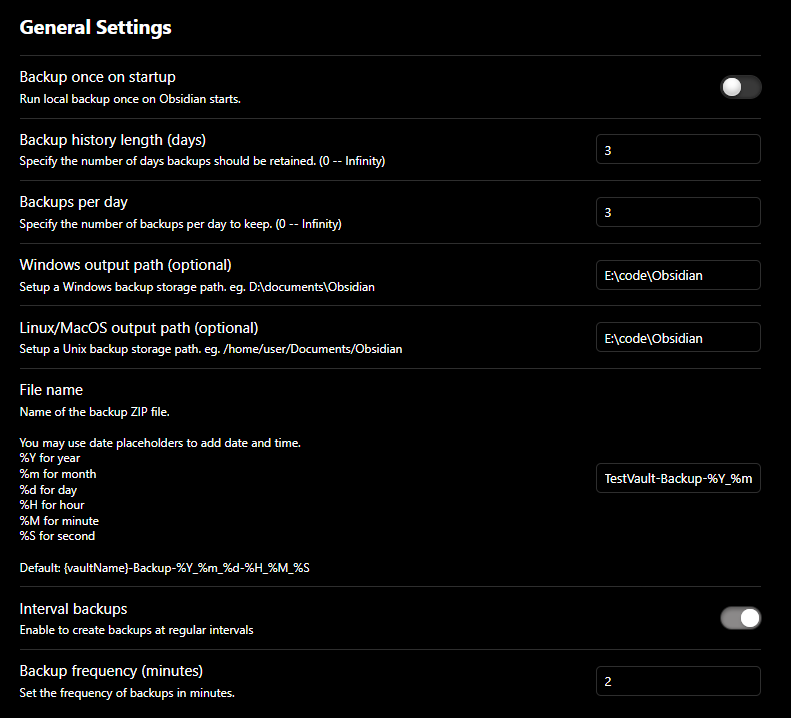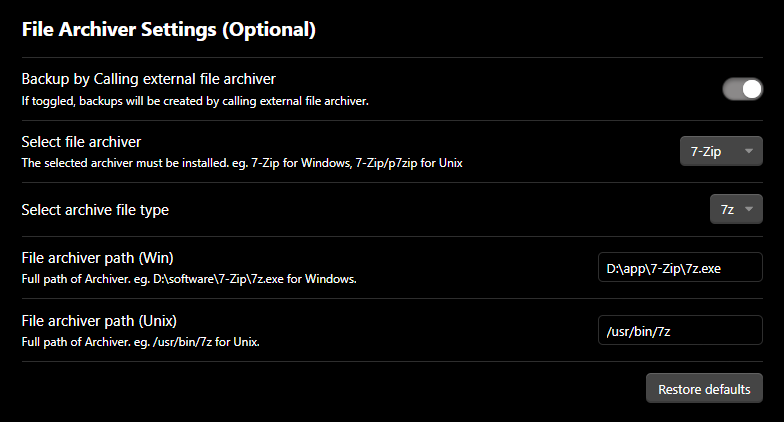Automatically creates a local backup of the vault.
- Backup on startup
- Setup backups' lifecycle
- Customize output path
- Interval backups
- Backup by calling archiver
- Setup the output path depends on your computer platform.
- Setup the Windows and Unix output path while you using these two platforms.
If you turn on interval backups, it is recommended to set a reasonable bakcup frequency, e.g. >=10min, this plugin costs CPU resources and Disk I/O resources, backup frequently might cause lagging.
- (Experimental) If you have a large size vault and Obsidian stucks on backing up, please try the experimental feature in setting page.
For user who owns a vault with large size, it is recommended to turn on
Backup by calling external file archiverin setting page, the experimental feature of the latest version, then setup the rest of settings of archiver.
Enter the command panel using Ctrl + P.
Click the sidebar icon.
- Search
Local Backupat Obsidian Community Plugins and install it. - Enable
Local Backup. - Setup
Local Backup. - Apply settings or restart Obsidian.
- Enjoy! 🎉
- Copy over
main.js,styles.css,manifest.jsonto your vaultVaultFolder/.obsidian/plugins/your-plugin-id/. - Open Obsidian and enable
Local Backup. - Follow the guiding above.
- Clone this repo.
- Make sure your NodeJS is at least v16 (
node --version). npm ioryarnto install dependencies.npm run devto start compilation in watch mode.npm run buildto build themain.jsin./build.
- Backup on startup.
- Archive the backup dictionary to save disk memory.
- Customize the backup lifecycle.
- Customize the backup storage path.
- Add a command to create a backup.
- Add interval backup.
- Backup by calling archiver, eg.
7-Zip.
Obsidian Local Backup is licensed under the MIT license. Refer to LICENSE for more information.




